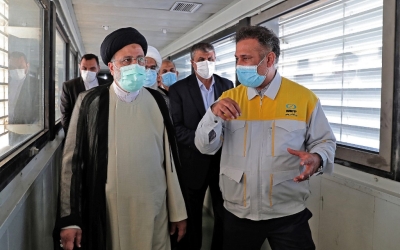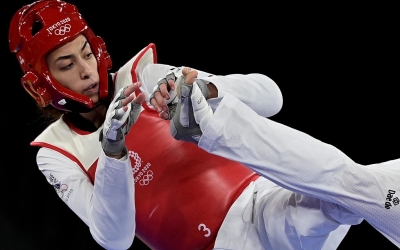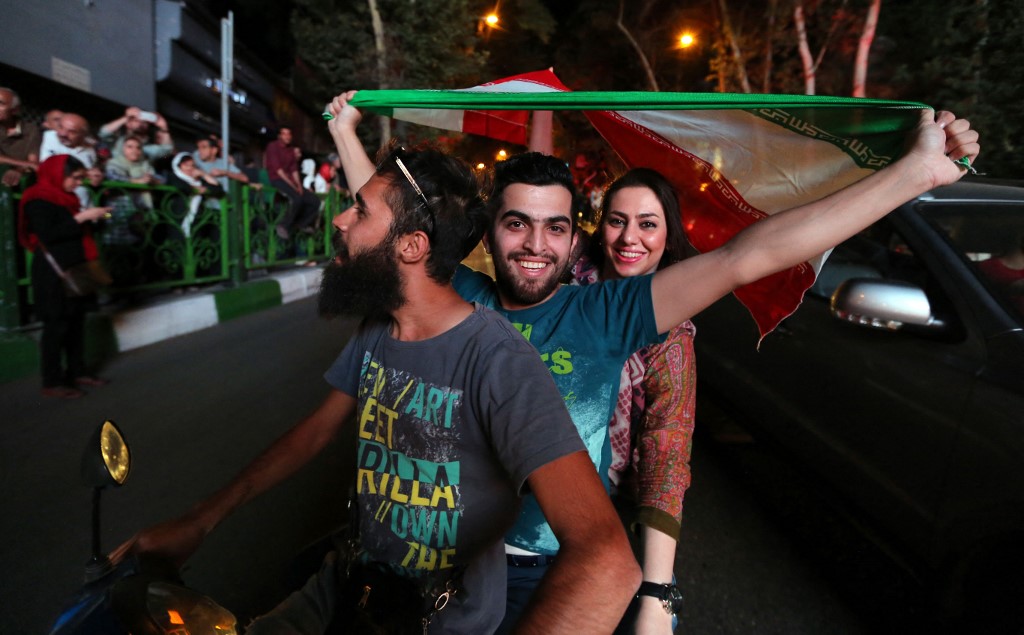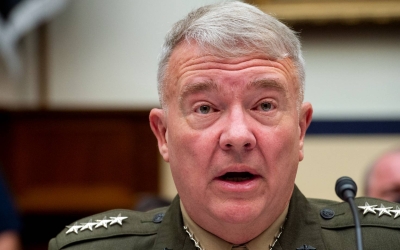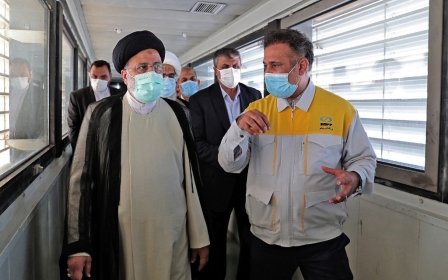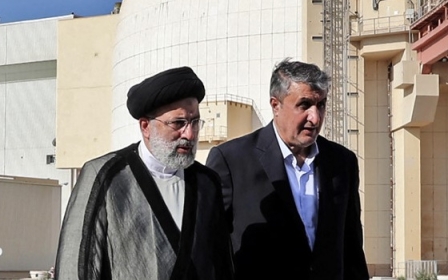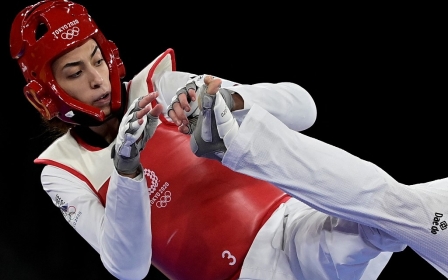Iran nuclear deal: The JCPOA explained
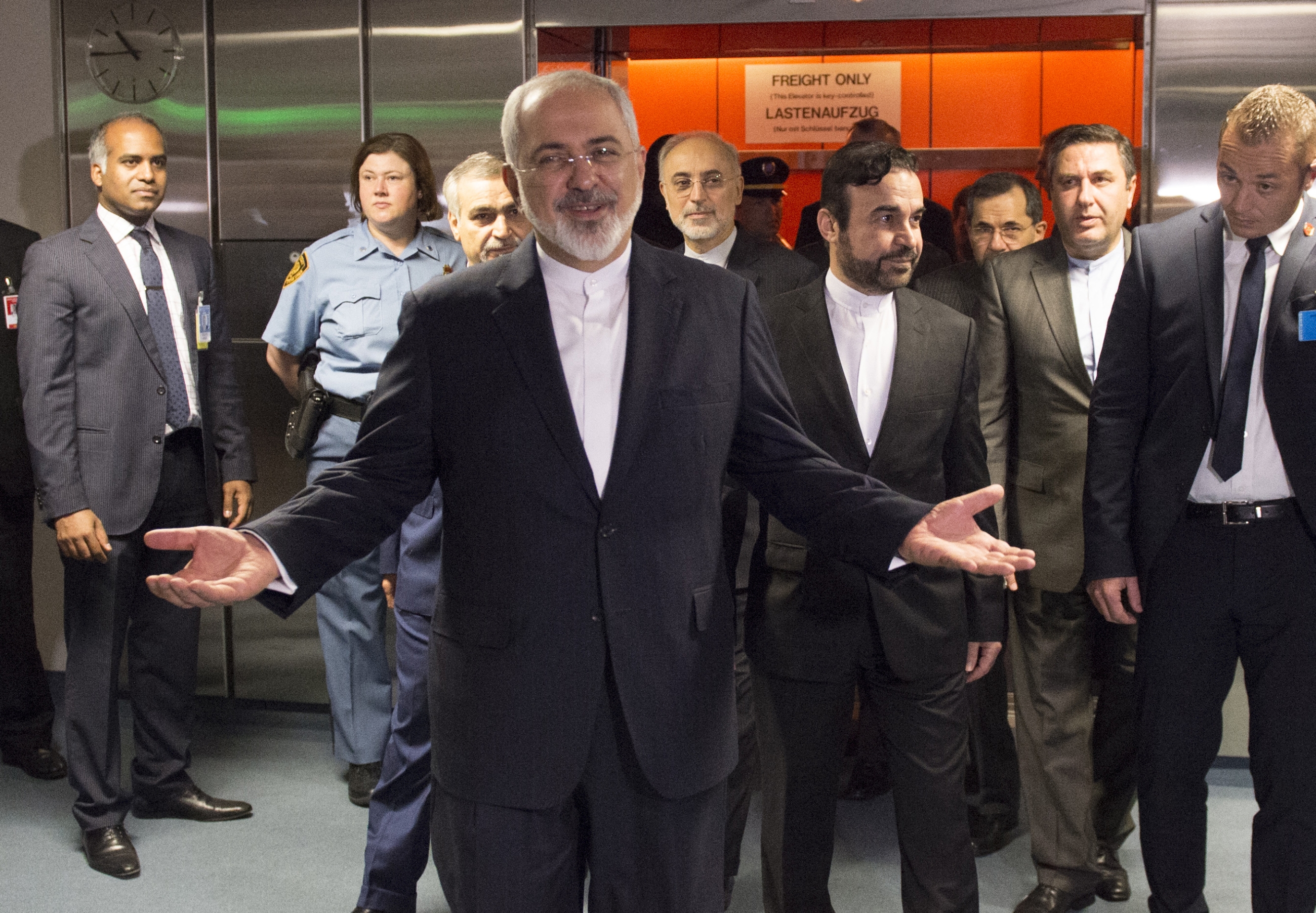
On 8 May 2018, US President Donald Trump announced that the United States was pulling out of the Joint Comprehensive Plan of Action (JCPOA), the nuclear agreement it had signed with Iran on 14 July 2015, alongside China, France, Germany, Russia and the UK.
The US withdrawal involved reimposing the tough economic sanctions against Iran it had lifted when the agreement was signed.
New MEE newsletter: Jerusalem Dispatch
Sign up to get the latest insights and analysis on Israel-Palestine, alongside Turkey Unpacked and other MEE newsletters
In signing the deal, Iran accepted very severe, albeit time-limited, restrictions on its civil nuclear programme in exchange for the lifting of all nuclear-related sanctions against it, including those imposed unilaterally by the US and the European Union.
The purpose of these sanctions was to force Iran to cease enriching uranium, which it had been doing since 2005 under the supervision of the International Atomic Energy Authority (IAEA). The key victory for Iran in the JCPOA was that the US accepted Iran’s right to enrich uranium on its own soil, though in a highly restricted form until 2030. Without this concession, Iran would never have signed the deal.
Now, in violation of the JCPOA, the US was re-imposing sanctions, which then-secretary of state Mike Pompeo asserted would not be lifted again until Iran met 12 demands. These included ceasing uranium enrichment permanently, ending support for Hezbollah, Hamas and Islamic Jihad, and the complete withdrawal of Iranian forces from Syria.
Iran is a party to the NPT
Unlike Israel, Iran is a party to the Treaty on the Non-Proliferation of Nuclear Weapons (NPT), the internationally accepted rules-based system governing nuclear activity by states. It signed the NPT as a “non-nuclear-weapon” state in 1968 and, in so doing, undertook not to develop nuclear weapons.
As required by the NPT, Iran’s nuclear facilities are and always have been under IAEA supervision, and the agency has never detected any diversion of nuclear material from these nuclear facilities for possible military use.
'The production, stockpiling, and use of nuclear weapons are forbidden under Islam... the Islamic Republic of Iran shall never acquire these weapons'
- Ali Khamenei, in 2012
Iran’s leaders have repeatedly denied that they have any ambitions to develop nuclear weapons. What is more, in a speech to nuclear scientists on 22 February 2012, Iran’s Supreme Leader, Ayatollah Ali Khamenei, declared the possession of such weapons a “grave sin”.
There was nothing new in this statement: in 2005, Khamenei issued a fatwa - a religious edict - saying that “the production, stockpiling, and use of nuclear weapons are forbidden under Islam and that the Islamic Republic of Iran shall never acquire these weapons”.
Of course, this is not an absolute constraint on Iran developing nuclear weapons, but it’s unlikely that the religious authorities in Iran would modify this principle unless Iran was perceived to be under an existential threat, most plausibly, after having been attacked militarily by the US and/or Israel.
In a National Intelligence Estimate produced in November 2007, US intelligence judged that Iran did not have a nuclear weapons programme. There is no suggestion in the 2021 Annual Threat Assessment by US intelligence that its judgement is different today.
NPT grants rights to civil nuclear programme
In return for surrendering its right to develop nuclear weapons, the NPT grants “non-nuclear-weapon” states like Iran the right to develop a civil nuclear programme. Article IV(1) of the treaty makes this clear: “Nothing in this Treaty shall be interpreted as affecting the inalienable right of all the Parties to the Treaty to develop research, production and use of nuclear energy for peaceful purposes.”
So, on the face of things, the NPT gives all “non-nuclear-weapon” states what it calls an “inalienable right” to uranium enrichment on their own soil, so long as the enrichment is not for weapons manufacture.
Argentina, Brazil, Germany, Japan and the Netherlands are all in the same position as Iran. They are all “non-nuclear-weapon” state parties to the NPT. All of them have uranium enrichment facilities without being accused of breaching the NPT.
John Kerry was chairman of the US Senate Foreign Relations Committee from 2009 to 2013, when he became President Barack Obama’s secretary of state and led for the US in the JCPOA negotiations. He told the Financial Times on 10 June 2009 that Iran had “a right to peaceful nuclear power and to enrichment in that purpose”.
Nevertheless, for a decade prior to the signing of the JCPOA in 2015, the Bush and Obama administrations tried, with the backing of the EU, to force Iran to cease uranium enrichment. If the US/EU had gotten their way, Iran would have been the only state in the world banned from having uranium enrichment facilities on its own soil.
Despite applying this economic pressure, the US/EU failed to force Iran to cease enrichment. On the contrary, whereas in 2005 there were no centrifuges enriching uranium in Iran, by 2015 around 19,000 centrifuges were installed, with about 10,000 of them in operation.
Obama’s U-turn
In 2013 or thereabouts, the Obama administration did a U-turn and abandoned its attempt to force Iran to cease uranium enrichment on its own soil.
That's why US negotiations with Iran about its nuclear activities, which began secretly in Oman in March 2013, ended successfully in Vienna on 14 July 2015 with agreement on the JCPOA.
Without that reversal of policy, there would have been no deal, because retaining enrichment facilities on its own soil has always been Iran’s bottom line and it was prepared to endure years of sanctions in order to defend that bottom line.
As part of the deal, the US imposed severe, time-limited restrictions on Iran’s uranium enrichment capabilities, its enriched uranium stockpile and on many other aspects of its nuclear programme.
There was no justification for imposing these restrictions on Iran’s civil nuclear programme: as a “non-nuclear-weapon” party to the NPT, Iran is not allowed to acquire nuclear weapons, but the non-proliferation agreement places no limits on civil nuclear activity, providing it is under IAEA supervision.
No other party to the NPT has had limitations placed on its civil nuclear programme.
Iran agreed reluctantly to the JCPOA to get rid of crippling sanctions by the US/EU and in the hope that after the US-imposed restrictions had expired it would have a civil nuclear programme of its choosing.
US violates the JCPOA
From January 2016, when the JCPOA became operational, until Donald Trump announced his intention to violate the agreement on 8 May 2018, the IAEA reported repeatedly that Iran was complying fully with its obligations under the agreement.
On 9 May 2018, IAEA Director General Yukiya Amano issued a statement confirming that this was still the case: “Iran is subject to the world’s most robust nuclear verification regime under the JCPOA… As of today, the IAEA can confirm that the nuclear-related commitments are being implemented by Iran.”
Over the following year, while the US increased the economic pressure on Iran in violation of the nuclear deal, Iran remained in full compliance. It looked to Germany, France and the UK for political support and for help in countering US sanctions - but it has looked in vain.
Theoretically, France, Germany and the UK were then - and still are - in favour of maintaining the JCPOA. But the three of them have provided the US with an excuse for violating it by echoing US complaints that it doesn’t cover the full range of Iran’s alleged sins and therefore needs to be modified.
Iran increases its non-compliance
After a year of renewed US sanctions, with the three European states proving to be of no help, the prospects for Iran looked bleak. There was no obvious way out.
Iran adopted a more aggressive stance. On 8 June 2019, it announced that it would no longer be bound by the JCPOA's limits on heavy water and low-enriched uranium, while emphasising that the steps it proposed to take would be easily reversible - and would be reversed if the US came into compliance.
In the succeeding years, Iran has steadily increased its non-compliance with its obligations under the JCPOA.
From the outset, the new US administration of President Joe Biden has seemed willing to lift US sanctions if Iran returned to compliance with the JCPOA. However, nearly a year has passed without a deal along these lines being struck.
Having been stalled for six months, negotiations are set to resume on 29 November.
Middle East Eye delivers independent and unrivalled coverage and analysis of the Middle East, North Africa and beyond. To learn more about republishing this content and the associated fees, please fill out this form. More about MEE can be found here.


